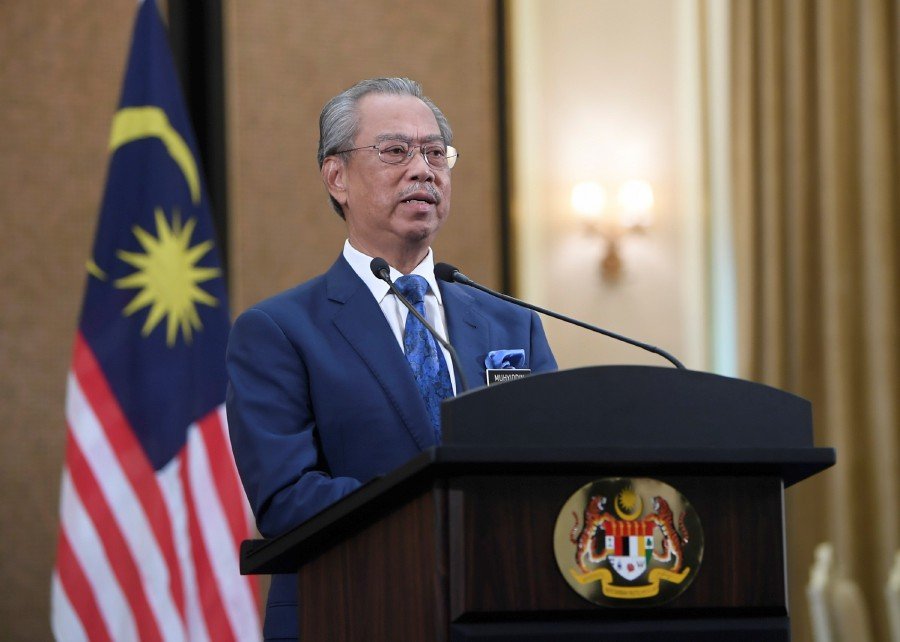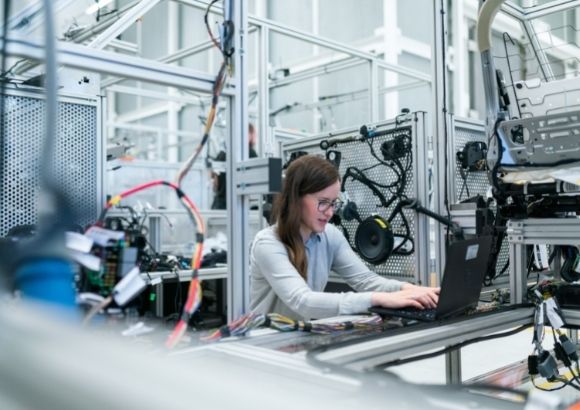TVET Is Not “Second Class Education” - Prime Minister
 Schooladvisor Team
Schooladvisor TeamTechnical Education and Vocational Training (TVET) is education and training that prepares students with skills needed in the workforce. In other words, TVET provides students with employability skills which they have gained through spending more time learning the practical rather than theoretical.
For the longest time, TVET has been painted as education meant for students who do not have a bright future in conventional education. The stigma against TVET is slowly fading as people begin to see the changes in the professional world where academic certificates are not the be-all, end-all anymore.

Prime Minister, Tan Sri Muhyiddin Yassin. Photo by BERNAMA
At the TVET Expo and Summit 2021 (TES2021), Prime Minister of Malaysia, Tan Sri Muhyiddin Yassin emphasised that technical and vocational studies are not “second class education” meant for dropouts or not-so-bright students, a belief that has been ingrained in parents and students for years.
The world is rapidly moving towards digital and modern technology has become a huge part of our lives. When humankind was struck by COVID-19, we were almost totally dependent on technology to move on with our everyday lives.
As such, recent studies have shown that artificial intelligence, robotics and coding skills will be in high demand in the near future. These skills are taught in technical and vocational schools which further stresses the importance of technical and vocational education.
The Importance of Technical and Vocational Education in Today’s World
The era where vocational education is seen as the last option has long gone as employers of this age are more keen on recruiting graduates with special sets of technical skills.
Technical and vocational education bridges the gap between education and work. Graduates with necessary skills are more likely to adapt well in their new work environment and this can be a huge advantage to the employers who save so much on time and money to train the new hire.

Photo by Austin Distel on Unsplash
Executive director of VS Industry Bhd said graduates should be well-versed in both the basics of their field and computer applications in order to compete in the job market. On top of technical skills, he emphasised the importance of English language for day-to-day communication at work. He said, “They must also be well-versed in English for day-to-day job communications and acquiring knowledge.”
Johor South SME adviser, Teh Kee Sin remarked that technical and vocational skills are important because the competition for employment among degree holders is tough. Employers are more likely to hire graduates who come with a set of industrial skills instead of those with mere high CGPAs.
He said tertiary education should focus on producing a workforce that will match industry needs as technical and vocational skills are important to match current market requirements.
The Employability Rate of TVET Graduates in Malaysia
The employability rate of TVET graduates in Malaysia demonstrated an increment over the years which explains the positive impact of technical and vocational education for students.
Higher Education Minister, Datuk Seri Dr Noraini Ahmad explained during the TVET Expo and Summit 2021 (TES2021), held at the Kuala Lumpur Convention Centre: between 2018 and 2021, polytechnic and community colleges produced nearly 7,000 entrepreneurs among their graduates.
The Malaysia Education Blueprint 2013-2025 Annual Report 2019 revealed that the employability rate of graduates of community colleges and polytechnics in TVET field was at 98 percent, as compared to 2018, which was 82 percent. This figure is predicted to go up especially post-pandemic.
Government and Private Agencies’ Efforts to Empower Technical and Vocational Education
Seeing how vital technical and vocational skills are in the workforce, government and private sectors have been empowering vocational education and training through many outreach programmes.
Just last week, En De Liow, a PETRONAS Trackside Fluid Engineer who works closely with the Mercedes-AMG PETRONAS Formula One (F1) racing team, gave an inspiring talk to more than 200 students from Despark College, a local leading automotive and aircraft maintenance college.

Photo by paultan.org
From left: Lewis Hamilton, En De Liow, Toto Wolff, Stephanie Travers and Valtteri Bottas with the F1 W11 EQ Performance
Liow, who spoke about the importance of being a team player and making the most out of his opportunities, shared, “I’m extremely blessed to have been part of the Mercedes-AMG PETRONAS F1 racing team. This is truly a money-can’t-buy experience. With that, my hope is to share, inspire and empower young talents who especially have high interest in the automotive industry to pursue their passion and to keep working at honing their skills and talents in that direction.”
This initiative of the meet-and-greet session with Liow was to bridge the gap by bringing real-life industry exposure and insights into the profession.
According to Datuk Seri Dr Noraini Ahmad, the National TVET Council has outlined strategic thrusts and empowerment strategies to strengthen TVET as a national agenda. “These include integrated and coordinated governance, industry-driven TVET and TVET shaping the future,” she added.
Furthermore, the Malaysia Digital Economy Corporation (MDEC), Malaysia’s lead agency in digital transformation recently announced its collaboration with Sunway Education Group (SEG) to establish Malaysia’s first tuition-free coding school, 42KL.
The aim of this initiative is to ensure the creation and nurturing of top tech talents needed to fuel the rapid pace of the digital economy. MDEC believes that public-private collaborations can help to manifest the mission.
Photo by MDEC
For SPM leavers, Malaysia Airlines Bhd is offering various technical aircraft engineering courses for them to pursue a career in the aviation industry. The application will be available until July 15.
"We are excited to develop and nurture new talents and our future aviators to be part of the aviation ecosystem," said Ahmad Luqman Md Azmi, the group chief operations officer of Malaysia Airlines.
Among other efforts by the government was to encourage unemployed graduates to enrol in short courses under the Lifelong Learning programme (PSH). This programme is offered at community colleges around the country to help graduates enhance their technical and entrepreneurial skills.
Although this programme was introduced in 2002, the current Deputy Higher Education Minister, Datuk Dr Mansor Othman said entrepreneurial knowledge is important to secure a placement in the job market during this difficult time. Thus, he is calling for more graduates to participate in this programme while waiting to get into the workforce.
Check out also:
The Hidden Benefits of Coding & Where You Can Find It in KL
Importance of Balancing Technology with Outdoor Exposure in Children

